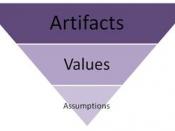Organizational Behavior (OB) is defined as the study of individuals and groups in organizations (Schermerhorn, Hunt, and Osborn). With high technology, global competition,
High-performance systems and customers who are demanding, remarkable changes in the workplace have occurred. A key goal in OB is to value diversity and respect differences in the workplace. Companies are becoming more diverse in areas such as gender, race and ethnicity, age, and disabilities. The purpose of OB is to build quality relationships through human, organization, and social objectives. Organizational behavior covers a wide variety of topics such as, human behavior, leadership, change, and team work.
Organizational culture (or commonly called corporate culture) is a system of shared actions, values, and beliefs that develop within a company (Schermerhorn, Hunt, and Osborn). The culture helps guide the behavior of its members, and determines leadership, communication and team dynamics. Most managers believe that cultural differences do have a large impact on the performance of organizations and the quality of work by its members.
Corporate culture provides answers for internal integration. That is they establish an identity for a group of individuals. Through communication members are able to characterize their environment.
Diversity is the different characteristics among people. In any organization there are diverse demographic differences among employees including gender, age, race, sexual preference, and disabilities. Marital status and religion are also factors that comprise differences in employees. Because of diversity stereotyping and discrimination increases and knowing how to properly manage diversity is more important. Stereotyping and discrimination prevent people from getting to know one another and to appropriately assess each others potential. Discrimination is counterproductive and decreases the employee's ability to be fully developed. Recognizing the diverse workforce and the societal differences of its employees the organization is able to be fully become closer to both its...


